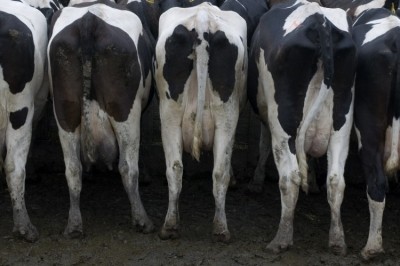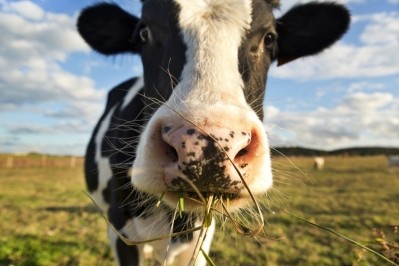Winter washout may lead to mineral deficiencies in cattle

This could potentially lead to milk production losses, experts have warned.
According to Mole Valley’s Dr Alison Bond, the record rainfall experienced in the UK during the winter may have had an adverse impact on soil mineral levels.
She said: “Ground that has been underwater can affect the oxygen level and the uptake of minerals by the plant. We can also see an increase in the number of heavy metals, such as molybdenum and iron, taken up by these plants.
“These can interfere with the availability of other minerals and can impact the availability of other major elements such as calcium, magnesium and phosphorous.”
Due to soil compaction, iron levels may increase, which could block other minerals from being available, she explained.
“Areas known for high levels of molybdenum could see exacerbated levels caused by the overwinter conditions. For cattle close to calving, those levels are extremely important.”
Spring grass growth may further dilute the concentration of minerals and magnesium, she added, making testing of fresh grass ‘absolutely vital’.
According to Mole Valley Farmers head of grassland and forage agronomy Lisa Hambly, testing ‘will give you an idea of how well that soil profile is being taken up within the crop’.
“Soil tests should also be looked at, preferably a broad-spectrum test or an animal health soil test. If you know your soil has an underlying issue of over or under supply, you can take action to prevent any problems.”
Dr Bond added: “If that grass is also relatively low dry matter, so it's moving through the rumen quite quickly, the animal won't be able to take up all the available magnesium. This can be compounded by high nitrogen and potassium levels, commonly seen on ground that's been well treated with slurry.”
She explained that blood tests could help detect if crucial nutrients are lacking from the animal’s diet before physical symptoms appear.
Mineral deficiency in livestock can cause poor fertility, reduced performance, pigmentation issues, twitching and nervousness, and white muscle disease.
Mineral supplementation options include free access to blocks or buckets and inclusion in compound feeds or through individual boluses. Bespoke minerals can be formulated where a mineral audit has been conducted.
By performing a mineral audit by testing soils, fresh grass, slurry, and blood samples from animals, farmers can assess what is available and then match that with what the animal needs, the experts said.
“ What an animal needs today might be very different from what it needs in six months,” Dr Bond added, “depending on what you are trying to do with those animals. Are they breeding animals or growing animals? Those change their requirements. It's about looking at supply versus what they actually need.”












